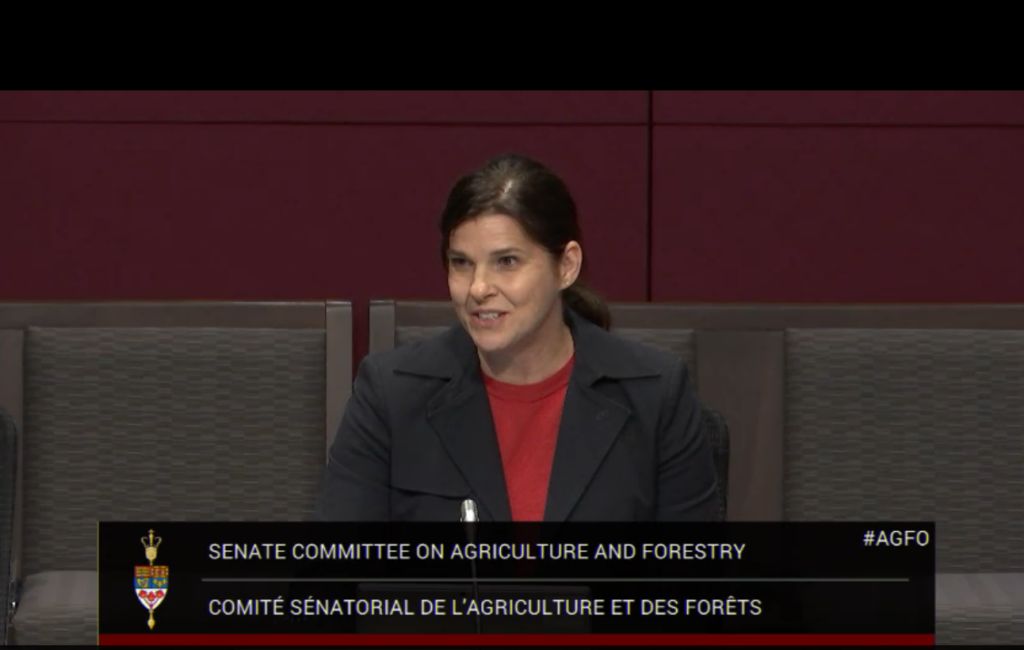
As part of its nationwide assessment of soil health, the Senate of Canada invited Soil Health Insititute Chief Scientific Officer Cristine Morgan, Ph.D., to speak to the Standing Senate Committee on Agriculture and Forestry in Ottawa.
Morgan told the committee how soil health management systems in small grain farms in Canada are generally more profitable than conventional systems, drawing on data collection and analyses made possible by partnerships with Canadian farmers, scientists, businesses, and nonprofits.
The Feb. 13 testimony detailed SHI’s partnership with General Mills to conduct partial budget analyses for small grain farms in Manitoba, Saskatchewan, and Ontario. Based on farmer interviews, SHI found that farmers using a soil health management system save an average of US$27/acre, with net farm income improving by US$31/acre. Farmers also reported benefits of their soil health management systems, including increased resilience to extreme weather, better access to their fields, and improved water quality.
Morgan shared SHI’s minimum suite of cost-effective health measurements, derived from over 30 soil health indicators at 124 agricultural research sites, including 17 sites from Alberta, Manitoba, Saskatchewan, and Ontario. She also described a partnership with the Greenbelt Foundation in the Golden Horseshoe region of Ontario, a pilot program that will provide a regional assessment of soil health, including its current state, improvements already being made with soil health practices, and potential for further improvement.
“By measuring soils and management, we will provide producers with insight on how healthy their soil is and empower them to create a goal on how healthy they want their soil to become,” she told the committee.
After a year of sampling 124 fields in Ontario with partners at the Greenbelt Foundation, SHI determined that current adoption of reduced tillage and cover cropping can increase soil carbon, C mineralization potential, and aggregate stability by 20%.
“These are great improvements, but we also have evidence that changing management can do more,” Morgan said.
Watch the full testimony: